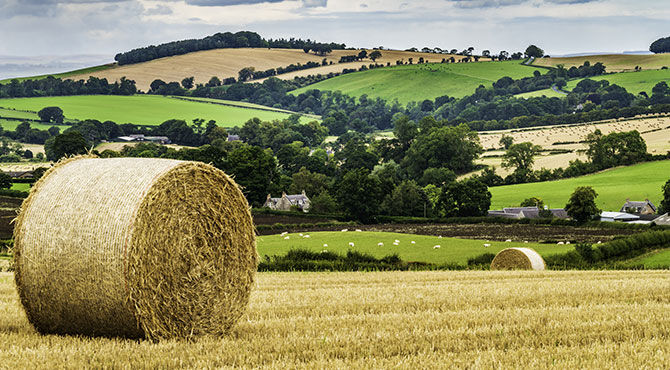UK farmers urged to develop Asian markets
Farmers in Britain are being urged by the government to “seize the opportunities” offered by Brexit and exploit emerging markets in Asia and the Americas.

 25 February 2021
25 February 2021Open Doors campaign for UK farmers
Addressing the online conference, International Trade Secretary Liz Truss announced a £2 million 'Open Doors' campaign to help farmers export to new markets. She said that for almost 50 years the UK agriculture sector had been held back by the EU's "anti-innovation approach".She said, "We have had high tariff walls with the rest of the world, whether it be up to 26% on beef going to the American market, or a 150% tariff on Scotch whisky to India."But now we have an opportunity as independent trading nation to set our own tariffs and to deal with these issues which have held us back."And we are seizing our freedom to deepen our trade worldwide from the Americas to the Asia-Pacific, where fast-growing economies are set to dominate global demand over the coming years. This is where the real opportunities lie for Britain and our farmers."Liz Truss says the EU will remain an important market for the UK
While she said the EU would remain an important market and that bureaucratic problems on exports posed by Brexit would have to be sorted out with Brussels, Ms Truss stressed the importance of a new, global outlook for the food and drink industry and its four million employees."These jobs range from farmers across the UK to caterers, manufacturers, and retailers reliant on their produce," she said. "Altogether, there’s a contribution £120 billion to our economy. But there really is potential for so much more."Liz Truss confirms that UK food standards will not be lowered, with any trade deal
She said that British food is showing it can compete in global markets, but added, "I want to be clear, we are not going to lower our food standards in any trade deal we sign. I will never sign a deal that is bad for British farming."We have a range of tools – from tariffs, to quotas to safeguards – to protect farmers from unfair competition."Environment: new "green" scheme will replace EU subsidies for UK farmers
Meanwhile, Environment Secretary George Eustice told the conference that he expected hundreds of farmers to take part in a pilot scheme this year to trial a new post-Brexit payment scheme aimed at rewarding agriculture practices that protect nature and tackle climate change.He said the scheme - one of the three tiers of the Environmental Land Management Scheme (ELMS) announced last year - would replace the former EU subsidies and, instead, would be a financially attractive way to support nature-friendly farm husbandry."The key is making it attractive enough financially so that it becomes a no-brainer to join us and that's exactly what we intend to do," said Mr Eustice."Every farmer, whether they recognise it or not, does have environmental natural assets on their home. And we want to pay them and reward them for managing those assets in the right way.“New payments and incentives will reward farmers for farming more sustainably, creating space for nature on their land, enhancing animal welfare and reducing carbon emissions.”"Levelling up Britain" is not just a north/south issue - it is also a rural and urban issue
An NFU report, 'Levelling up Rural Britain', which was launched to coincide with the conference, said investing in farming and rural communities could create jobs and improve the wellbeing of the nation in the wake of the Covid-19 pandemic.The report said that rural areas needed better broadband and mobile phone coverage to enable businesses such as farms, farm shops, wedding venues and B&Bs, to flourish.Minette Batters, president of the NFU, told the conference, "Investment in farming and in rural Britain not only brings about obvious benefits to food production but can have massive benefits to the whole country."If the past 12 months has taught us one thing, it's that we are all in this together - and a country which levels up everyone, everywhere, is a stronger country. Levelling up Britain is not just a north and south issue. Levelling up Britain is also a rural and urban issue."We need to enable collaborative green growth to level up rural Britain, providing the economic solutions to a truly one-nation UK."Read more news and views from David Sapsted.
Subscribe to Relocate Extra, our monthly newsletter, to get all the latest international assignments and global mobility news.Relocate’s new Global Mobility Toolkit provides free information, practical advice and support for HR, global mobility managers and global teams operating overseas. Access hundreds of global services and suppliers in our Online Directory
Access hundreds of global services and suppliers in our Online Directory
©2026 Re:locate magazine, published by Profile Locations, Spray Hill, Hastings Road, Lamberhurst, Kent TN3 8JB. All rights reserved. This publication (or any part thereof) may not be reproduced in any form without the prior written permission of Profile Locations. Profile Locations accepts no liability for the accuracy of the contents or any opinions expressed herein.



































